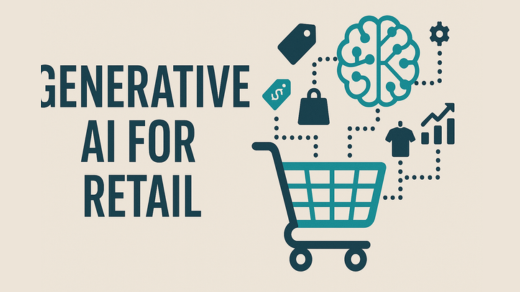Personalization has undergone a significant transformation in the retail sector over the years. Initially, it was primarily about basic customer segmentation based on demographic data. Retailers would group customers into categories like age, gender, or income level, which allowed for some level of targeted marketing. However, these methods lacked depth and often missed the mark when addressing individual preferences and needs.
As technology advanced, particularly with the rise of the internet and data analytics, retailers began to explore more sophisticated ways to personalize the shopping experience. The introduction of customer relationship management (CRM) systems enabled businesses to collect and analyze vast amounts of consumer data. This shift allowed retailers to tailor their marketing efforts more effectively, moving beyond broad segmentation to more nuanced strategies based on individual behaviors and preferences.
Today, the emergence of generative AI for retail is revolutionizing personalization even further. This technology allows retailers to analyze complex datasets in real-time, generating insights that can lead to highly personalized shopping experiences. By leveraging machine learning algorithms, retailers can predict customer preferences, recommend products, and create customized marketing campaigns that resonate with individual shoppers. Thus, generative AI marks a pivotal point in the evolution of personalization, making it deeper and more effective than ever before.
How Generative AI is Transforming Customer Experiences
Generative AI is at the forefront of transforming customer experiences in the retail industry. This technology enables retailers to create highly personalized content and recommendations tailored specifically to each customer. For instance, AI algorithms can analyze browsing history, purchase patterns, and even social media interactions to generate personalized product suggestions. This level of personalization not only enhances customer satisfaction but also drives sales, as customers are more likely to purchase items that genuinely appeal to them.
Moreover, generative AI can enable retailers to create dynamic and engaging shopping experiences. For example, virtual fitting rooms powered by AI can allow customers to visualize how clothing items would look on them without ever trying them on. This innovative approach not only reduces the hassle of returns but also encourages customers to explore products they might not have considered otherwise. As a result, the overall shopping experience becomes more interactive and enjoyable.
Additionally, generative AI can facilitate real-time customer service improvements. By employing AI-driven chatbots, retailers can provide instant assistance to customers, answering queries and resolving issues around the clock. These chatbots can learn from interactions, improving their responses over time and ensuring that customers receive the information they need quickly. This level of responsiveness significantly enhances customer loyalty and trust, making generative AI an invaluable asset in today’s competitive retail landscape.
Enhancing Inventory Management with AI-Driven Insights
Efficient inventory management is crucial for retailers aiming to maintain profitability and customer satisfaction. Generative AI for retail plays a vital role in optimizing inventory levels, reducing waste, and ensuring products are available when customers want them. By utilizing predictive analytics, retailers can analyze historical sales data, seasonal trends, and consumer behavior to forecast demand accurately. This enables businesses to stock the right products in the right quantities, thus minimizing overstock and stockouts.
Furthermore, AI-driven insights can help retailers identify patterns in consumer purchasing behavior, providing valuable information on which products are likely to perform well in the future. For example, if a retailer notices a consistent increase in sales for a specific category during a particular season, they can adjust their inventory strategy accordingly. This proactive approach allows businesses to capitalize on trends and maximize sales opportunities.
Additionally, generative AI can streamline the supply chain process by improving collaboration among suppliers, distributors, and retailers. With real-time data sharing and analysis, retailers can make informed decisions about replenishing stock, thereby reducing lead times and improving overall efficiency. This interconnectedness within the supply chain not only enhances operational efficiency but also positions retailers to respond swiftly to changing market demands.

